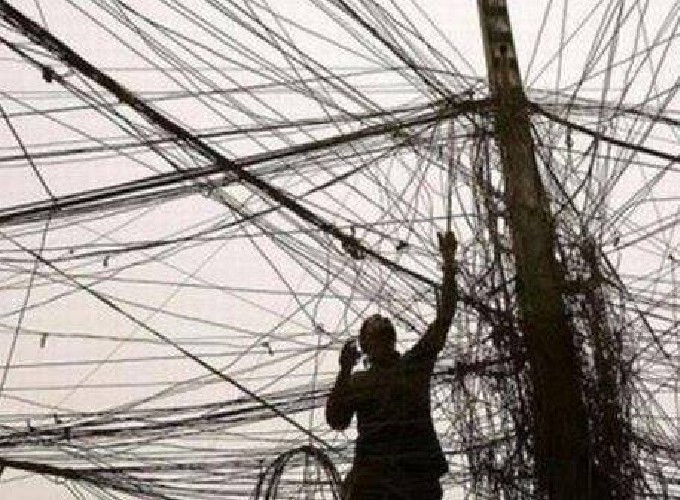Infrastructure Research & Strategy
Challenges:
In 2014, the Southeastern region of Turkey, illegal electricity use was around 90 percent. Compared to around 15% country average, these figures trigger various questions on distribution and access to infrastructure in the region. In the past couple of years, electricity distribution company introduced new and harsher methods one after the other to stop illegal electricity use but failed. As part of my Ph.D. dissertation, I develop an ethnographic research to understand how and why people from the region use electricity illegally to develop policy suggestions to decrease high illegal energy consumption.
Process:
1. Survey
To get a snapshot of the composition, satisfaction, and values of electricity users in the region, I run a small-n survey with 30 participants. The survey had questions on everyday electricity usage patterns as well as participants’ thoughts and concerns. The goal of the survey was to get an idea on general usage trends as well as users’ concerns and criticisms about state-led provision of electricity.
One of the Key Insights: Survey findings pointed that consumers have mixed feeling about illegal use and consider sparse distribution of irrigation canals as the primary reason of illegal electricity use in the region.
2. Interviews with farmers
Based on the survey’s key insights, I recruited people working in agricultural sector for in-depth interviews to get more insights on the problem and potential solutions. I conducted interviews with 20+ farmers owning small, mid-size, as well as large agricultural lands in the region. As illegal access to public resources is a fragile topic, rather than having a direct conversation on their own illegal electricity use, I conducted indirect interviews. Talking about ‘other farmers’ illegal use of electricity’ made my respondents feel more comfortable and willing to talk. I also asked the participants about crop types (dry or irrigated), irrigation patterns, irrigation-related problems they encounter.
One of the Key Insights: Farmers who do not get access to state irrigation canals use electricity illegally because it is very expensive to use it legally due to high volume they consume and the lack of any discount.
“I spent 15,000 TL to use groundwater for irrigation. I wish there had been no groundwater, for I would not have spent the money. When you do dry farming, if you get crops, you earn money. If you don’t, you will break even. Now with irrigated agriculture, we are always at a negative. They sent me an electricity bill of 8,000 TL. Even the personnel at the company were surprised to see how high my bill was.” –Interviewee A
“A couple of days ago, someone told me that he did not pay the electricity bill for the last 26 years; he is not subscribed. I said ‘where do you live, I want to move in there.’” –Interviewee B

3. Interviews with Bureaucrats and Technocrats
To get more insights on state policies in the region, I conducted 10+ in-depth interviews with bureaucrats and technocrats located a) in the capital city and b) in the research region. Interviewing state agents distributing electricity and irrigation water and shaping agricultural policies in the region made it possible to test my initial policy proposals as well.
4. Field Visits
I visited agricultural areas to learn from farmers how they use electricity illegally. Many of the farmers hook up their illegal electricity connections to the national electric grid. I also visited urban neighborhood with highest illegal household electricity use to gain information on changing illegal usage patterns between urban and rural areas.
As the last stop of my field visits, I went to the Research and Development Department of the regional electricity distribution company. From technocrats working at the institutions, I got information on how they try to keep up with street-level meter-tempering technologies and see their new smart meters and conducted follow-up interviews with more general questions on the high illegal electricity consumption in the region.

Key Findings:
The state and the electricity distribution company have been searching the solution in the wrong place. They would have more success by addressing the irrigation problem of farmers without access, rather than doubling down on preventive measures.
- A very high percentage of illegal electricity consumed in the Southeastern Anatolia region of Turkey was consumed by farmers.
- The state-provided irrigation canals were distributed highly unequally in the region.
- Farmers who do not have access to state irrigation canals use electricity illegally to pump up the deep groundwater and irrigate their crops.
- Even though electricity distribution company tries to implement new measures to prevent illegal use, there is a need of state-level policy change for a long-term solution.
Output:
I turned my findings into more than 10 conference papers, 4 public talks, and 2 academic articles. I plan to contact think-tanks in Turkey and write policy reports on the subject after I defend my dissertation.
Outcome (Anticipated):
Public policy change. Some of the potential measures that can be implemented:
- Further distribution of irrigation canals in the region.
- Provision of an electricity unit price discount to farmers without access to irrigation canals.
- Buying dry crops to a higher price to slow down the shift from dry to irrigated crops among farmers without access to irrigation canals.

